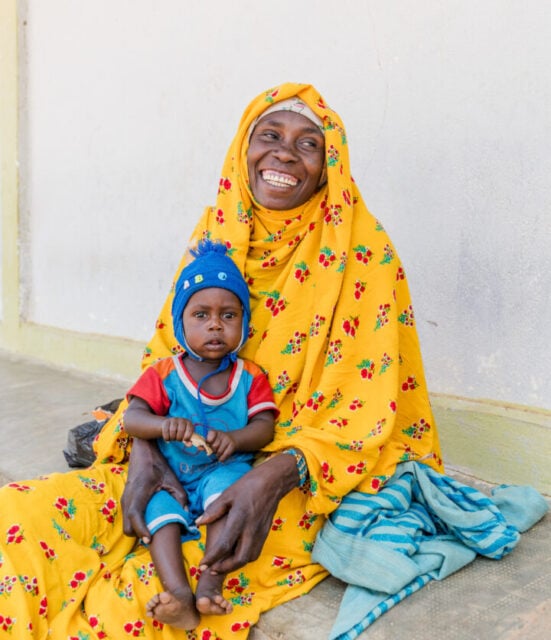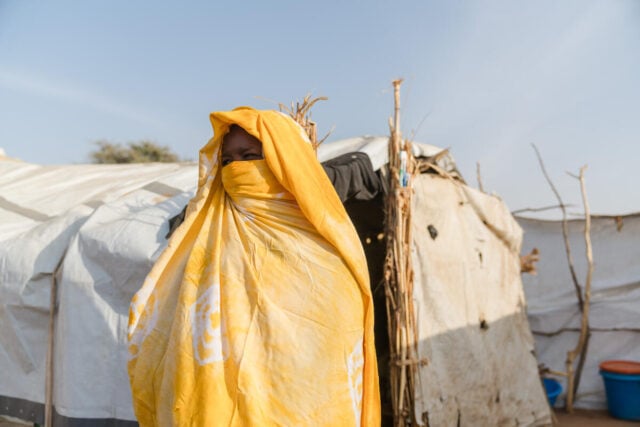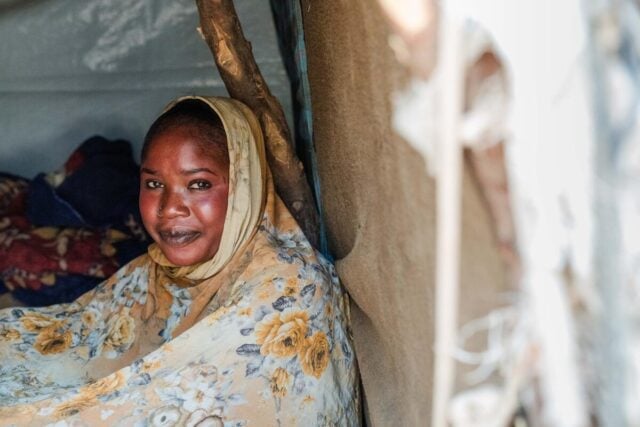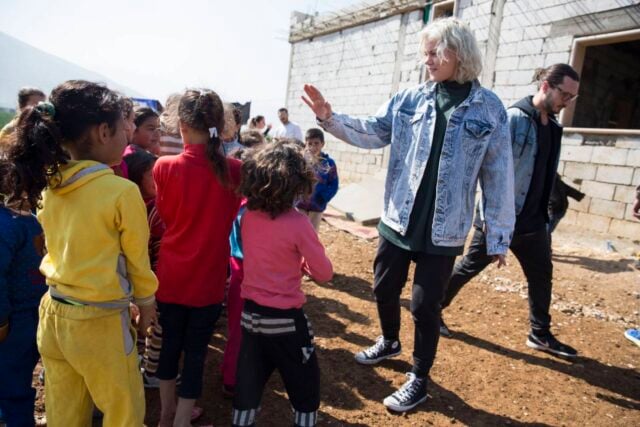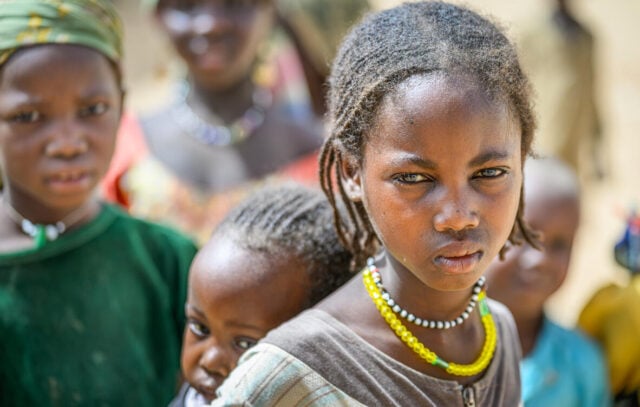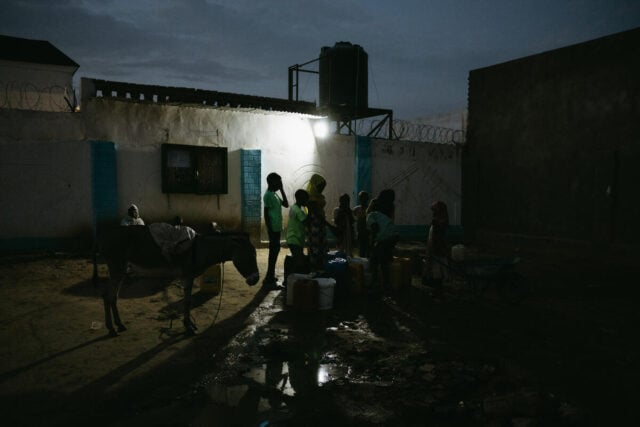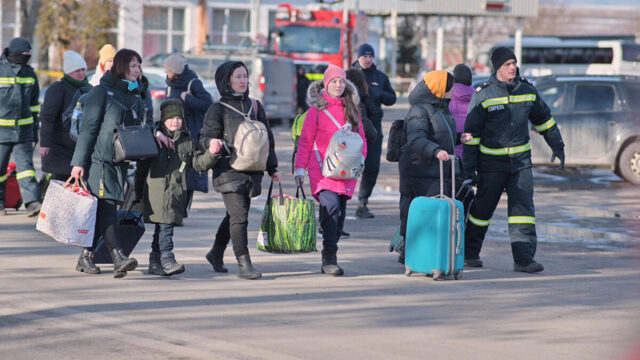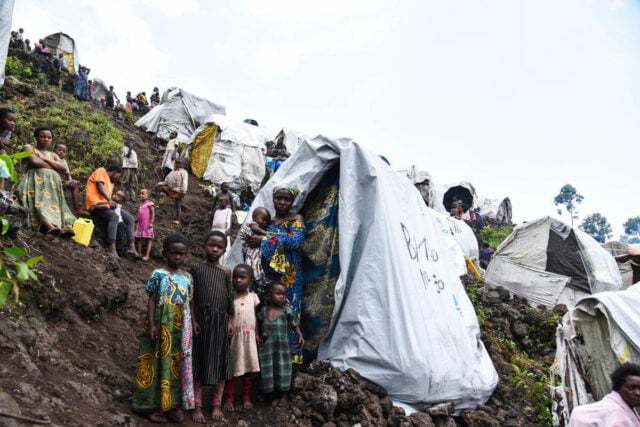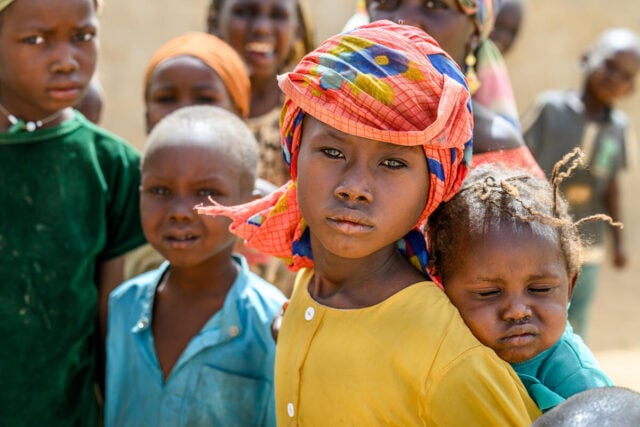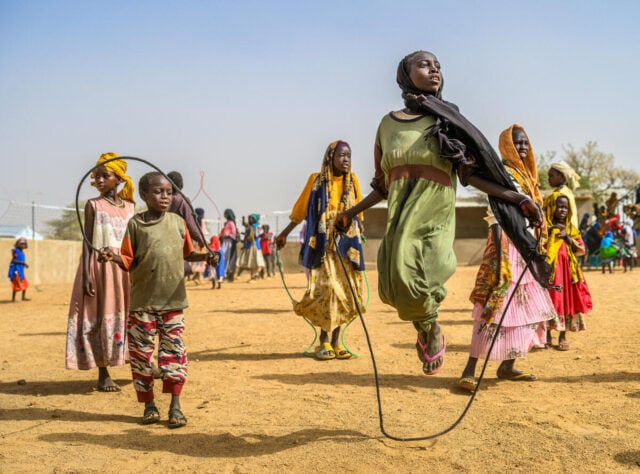Fatima arrived at a malnutrition stabilization center carrying her 9-month-old son, Hamed, who was dangerously underweight. For six days, she stayed by his side as he received emergency care. With no water available at the clinic, her other children walked 45 minutes each way to collect what they could from the valley. Hamed slowly regained strength and was transferred to outpatient care, where he now receives therapeutic food and regular checkups. His cheeks are full again, and his weight has climbed back into a healthy range.
News & Stories
Refugees
The fire that will not burn her
Entisr, a Sudanese refugee and survivor of sexual violence, has been displaced five times in her life, each escape marked by violence and immense loss. Despite her suffering, Entisr has become a leader, organizing support groups for other women who have survived similar violence and launching a savings initiative in a sprawling refugee settlement in Adré, Chad.
Strength in the aftermath of displacement
When violence escalated near her home in Sudan, Maha gave birth and fled just days later, carrying a newborn — and the weight of her family. After arriving in a temporary settlement in Chad with almost nothing, Maha stands strong in a fragile and uncertain future.
“Oceans” vocalist TAYA partners with World Vision on first U.S. headliner tour
TAYA, former Hillsong UNITED vocalist and famous for powerful voice singing the hit “Oceans (Where Feet May Fail),” has released her second solo album and is partnering with World Vision for her first U.S. headliner tour.
Rising from conflict: Voices of Sudan’s women and girls
Explore the struggles and challenging experiences of women and girls caught in the conflict in Sudan. Learn how World Vision’s Sudan relief efforts are offering hope amid violence, hunger, and displacement.
Sudan’s displaced children: Young refugees flee to Chad, many without families
The conflict in Sudan has left millions of children displaced, many without their families. Fleeing to Chad and other neighboring countries, young survivors face grueling journeys and emotional trauma. Learn how World Vision and local host families in Chad are supporting impacted children and how critical aid is helping them navigate life in refugee camps.
War in Ukraine: Displacement and refuge
As the war in Ukraine enters another year, World Vision continues to bring global expertise in partnering to support children and their families whose lives have been disrupted since early 2022. Learn more about World Vision’s Child-Friendly Spaces and how they offer educational routine, emotional safety, and a social environment to focus on processing and healing from trauma and grief.
DRC conflict: Facts, FAQs, and how to help
A recent surge in violence in the Democratic Republic of the Congo (DRC) threatens the lives of millions of children who are already suffering from hunger, disease outbreaks, natural disasters, and poverty. Learn more about the DRC’s conflict and current situation and about World Vision’s response to help impacted children and families.
Sudan crisis: Stories of survival, hope, and relief
View stories, videos, and updates about the Sudan crisis and World Vision’s response — compiled in one place. Explore the unfolding crisis in Sudan, view survivors’ stories, and learn how World Vision is delivering lifesaving aid to affected communities in the region.
Sudanese refugee children reclaiming their childhood
World Vision is providing crucial child protection support, including Child-Friendly Spaces, to vulnerable children affected by the Sudan conflict. Our programs extend to both Sudan and Chad, where refugee numbers have surged since April 2023.
